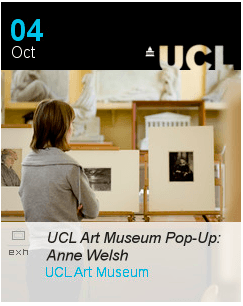Last Thursday, Julianne Nyhan and I accompanied some of the students from the Historical Bibliography module on a visit to the Bibliography Room in Oxford.
The trip was suggested by Elizabeth Gallagher, who as well as studying on UCL’s MA LIS, is a member of staff at the Bodleian Library, and who was able to introduce us to Paul Nash, who runs printing workshops.
Historical Bibliography is a ten-week module comprising a series of lectures on the history of the book and hands-on sessions at UCL Special Collections. From September 2011, it will be an optional module for the new MA DH.
Early in the course, the whole class also visits St Bride’s Printing Library, where they can see printing presses. At our last visit in October 2010, St Bride’s wasn’t quite ready to give practical experience in printing, so for the eleven students who opted into the Bibliography Room trip, this was their first experience using a handpress.
I asked the students and Julianne if they would be kind enough to share their thoughts on the visit, and how it had affected their thinking about printing and its impact on their work, as librarians, and in Julianne’s case, an academic in the online-always world.
Initially, the intention was to include some quotes in a blog post, but the responses were so interesting that I decided I couldn’t really cut them down. So I’ve compiled a slideshow report, and Julianne has given permission to upload her impressions and link to them as a pdf.
As the module coordinator for the Historical Bibliography, it was an absolute joy to see students (and my colleague) enjoying printing and its complexity, and an even greater joy to read their responses. As MA LIS student Jennifer Howard put it
There has been a massive shift from the use of the type mould and typeset plate to the use of Word and programming languages for web publishing, but that only made me realize how much potential there still is for things to change later on.
Or, from Julianne:
I had initially approached this outing from a historical perspective, hoping that it would help me grapple with some of my research questions. I had not expected that it would enable me to examine what is for me the utterly normal and every day act of using a computer to write with and through in an utterly new way.
For any lecturer, there is possibly no greater pleasure than sharing your passions with students and colleagues, and seeing them integrate them with their own existing experiences – taking them, and therefore you, somewhere new.
Many thanks to Paul Nash, Elizabeth Gallagher and the Bodleian Library; and to Julianne Nyhan and the Historical Bibliography students – it’s wonderful to see my own discipline from fresh eyes, almost as a tourist at home.
 At lunchtime on 4 October 2011 UCL Art Museum will be hosting a pop-up exhibition for which I am selecting works of art that started life as book illustration.
At lunchtime on 4 October 2011 UCL Art Museum will be hosting a pop-up exhibition for which I am selecting works of art that started life as book illustration. Close
Close

